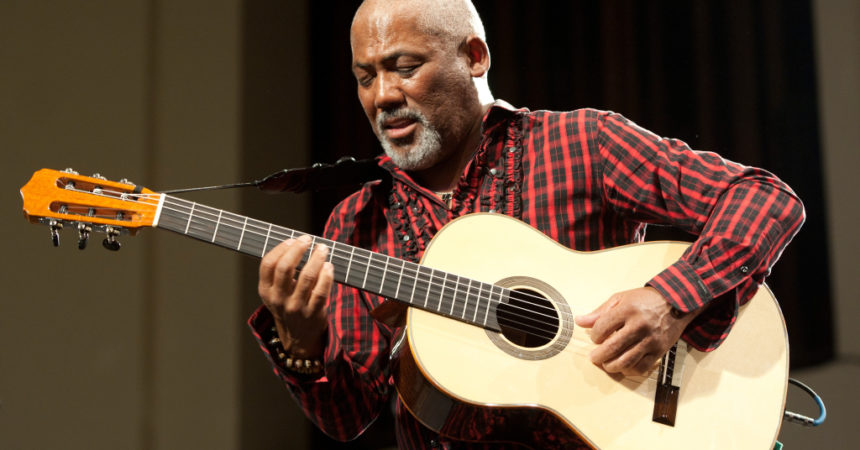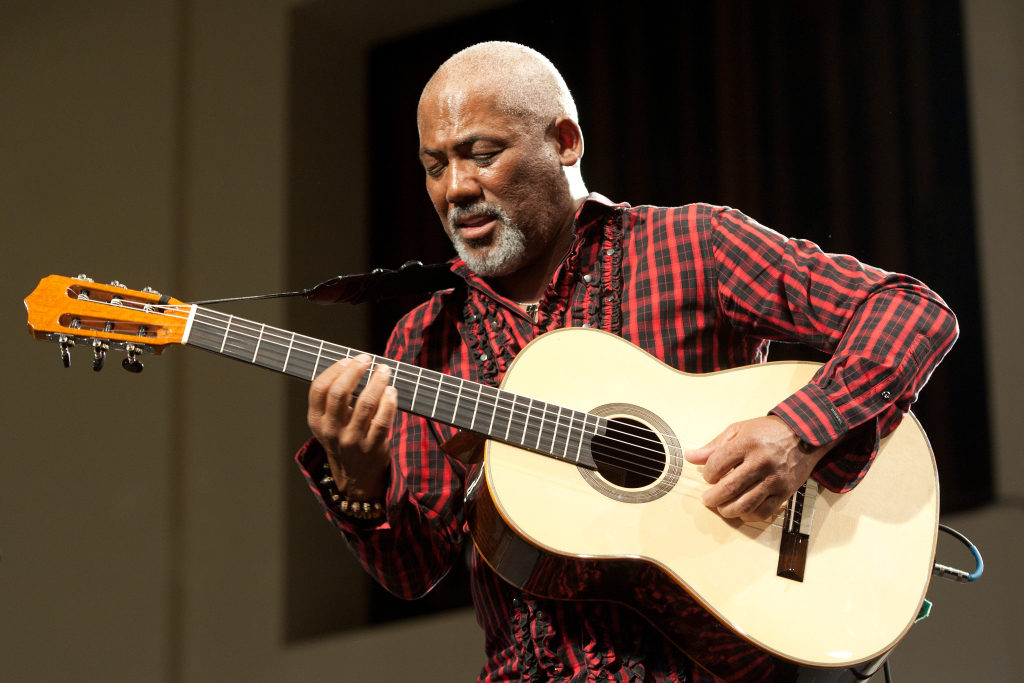
Ever-evolving Butler brings diverse music blend to Lee Hall

Jonathan Butler will perform for the first time in Tallahassee when he comes to Lee Hall on Sept. 15. Photo special to the Outlook
By St. Clair Murraine
Outlook staff writer
Guitarist Jonathan Butler isn’t a musician who could be pigeonholed.
Just ask Keith Miles, manager at FAMU’s WANM radio station where listeners can hear a variation of genres – R&B, gospel and jazz.
Butler’s music is played in all three genres on the one station where jazz is a mainstay.
“What Jonathan has done is not be one-dimensional,” Miles said. “He has used his talent in a number of different ways and being successful at that. It’s just a reminder of his diversity as an artist. His music touches a lot of people because it crosses several genres.
“He is like a best-kept secret. His body of work is tremendous.”
Butler burst onto the American scene in the 1980s with a self-titled album that featured a heavy dose of R&B. It has love ballads, too
Around the mid-1990s there was still another evolution of Butler’s music. This time it seemed right in line with the growing popularity of smooth jazz.
Even with the four gospel albums he’s released in recent years, none of what Butler has produced for his ever growing audience is conceptual.
Butler says his music comes naturally. Never based on what’s trending, he said.
“I don’t live in that world at all,” he said during a telephone interview from his home in Los Angeles, Calif. “I don’t have a formula. If you look in my iTunes selection you will understand that my music is from all over the world.”
Tallahassee will get a sampling of some of what Butler has produced in 50 years of performing. He headlines Night of Inspiration concert at Lee Hall on Sept. 15, beginning at 8 p.m.
Expect to hear some of the standards that made Butler an icon in jazz. Be prepared to hear plenty of gospel in his repertoire, too.
One of his staples is “We need you Lord.” It was released seven years ago, but it’s right on time for today, Miles said.
“That’s a powerful song,” he said. “It’s resonating right now because of everything that’s going on.”
Another gospel song in his lineup is “Falling in love with Jesus,” which was covered by Smokie Norful.
A devout Christian, Butler has been professing his faith on stage in recent years. Reviews have indicated that his longtime fans have come to expect it.
First-timers find it refreshing.
“What people are now experiencing from me has been a long time coming,” Butler said. “A long time of prayer for this release to happen to me.”
The gospel segment of his show is high energy. Butler simply calls it “freedom of belief.”
“The message is in the heart,” he said. “The harvest is plenty; the laborers are few and some of us are the ones that God has sent out.”
As much as the demand for his live shows and recorded music has grown, Butler lives a simple life. When he is on the road, he looks forward to getting home where playing golf and eating out are two of his favorite things.
“I’m not on a 24-hour schedule making music,” he said. “I always try to live, go out to eat or watch a movie. That’s really cool. That’s what I like to do.”
Butler began singing at an early age, performing in public at age 7 in his native Cape Town, South Africa. At age 13, covered the Drifters’ standard, “Please Stay.”
That propelled him to becoming the first Black singer to be played on White radio stations during a time when racial segregation was prevalent in South Africa.
Before moving to California, where he’s been based for the past 20 years, Butler established his brand in England. The recording company Jive signed him and his career took off.
There is nothing monotonous about Butler’s style, each album distinctly different. That’s deliberate, he said.
“It’s like when you cooking a meal,” he said. “You want to have Brazilian spices and different spices. You just keep doing it until you find the combination. When it tastes well and blends well, you could sell it.”
The same non-scripted approach that Butler uses to determine what types of songs go on an album, follows him even when it comes to finding lyrics.
“It comes and goes,” Butler said. “It’s like a wave of inspiration. I like to let it happen instead of forcing it. There are times when you could wait months for it to happen and then there are moments when it happens in one day.”







